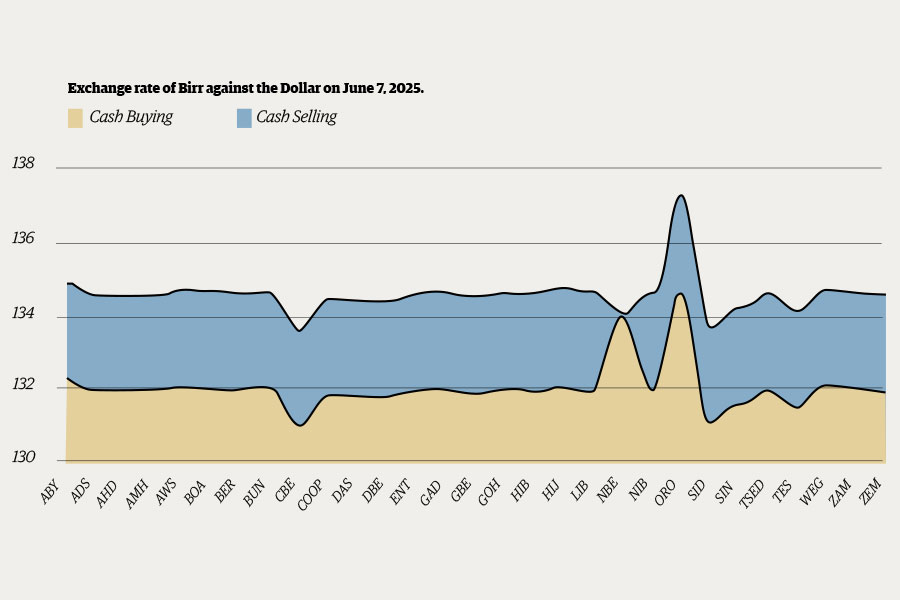
For cinephiles like myself, choosing a weekend movie is a cherished ritual. This familiar routine took an unexpected turn last weekend, leading me down a rabbit hole of copyright complexities plaguing Ethiopia's film industry.
Ordinarily, I would bypass the impersonal telegram channel of the cinema and head straight for a friendly chat with the mall manager. Our longstanding rapport grants me access to insider information, making movie selection a delightful social exchange. But, these are busy days that left the manager with precious little free time. I found myself scrolling through the Telegram channel, sifting through the weekend offerings.
Having already dismissed a few familiar titles and a marathon-length, three-hour epic, I was left with two intriguing choices: the highly anticipated "Kung Fu Panda IV" and a local film titled "Almotual." The allure of a local production piqued my curiosity. The cinema was renowned for showcasing the latest Hollywood blockbusters, premiering them alongside their international release dates.
Habitual caution urged me to consult Rotten Tomatoes, the online arbiter of cinematic merit. Reviews for "Kung Fu Panda IV" proved favorable, though not quite reaching the stratospheric heights of its predecessors. While the animated spectacle and slapstick humor of the franchise were undeniably appealing, the "young adult" demographic targeting felt slightly off-kilter for my tastes.
This hesitation nudged me towards "Almotual." Ethiopian cinema had gifted me with some truly remarkable experiences in the past. However, the industry also had its share of pitfalls – repetitive storylines, a reliance on a handful of familiar actors, and production values that occasionally left me wanting. Unfortunately, the digital space offered no insights into "Almotual." A search on Rotten Tomatoes yielded nothing, and YouTube, usually overflowing with trailers and clips, remained frustratingly silent until a video with the title materialised after relentless search. But the subsequent hour and a half of footage revealed a different film entirely – "400 Fikir."
This was a blatant ploy by unscrupulous YouTubers, a cynical attempt to lure viewers with a newly released film's title, only to serve up a completely unrelated movie. This deceptive tactic not only dupes viewers but also undermines the hard work of both filmmakers. The victims in this scenario are multifaceted – the creators of both films, the general public seeking genuine entertainment, and those who use social media platforms to legitimately promote their work.
By the time I reached the cinema the local movie had succumbed to the fate of a sold-out show. Left with "Kung Fu Panda IV," I settled back in my seat, ready for a dose of animated mayhem. Fortunately, the film delivered, a vibrant action, humor, and adventure, punctuated by the audience's collective laughter. As I immersed myself in the character's journey, the phrase "To do the right thing!" caught my attention. I could not help but draw parallels to the real world.
Witnessing the copyright infringement with stolen content generating views and subscriptions, felt akin to daylight robbery. My concerns intensified as my thoughts drifted to a local video rental establishment I frequented. This shop boasted a seemingly bottomless trove of entertainment. From Hollywood blockbusters to Bollywood classics and Nollywood stories, to a cornucopia of Ethiopian films, the collection seemed boundless. The sheer volume of content always astonished me. If a movie was not readily available on the shelves, the resourceful young owner had an uncanny knack for conjuring it from the digital ether.
I vividly recall him filling customer flash drives with Hollywood movies at a fraction of the cost, a practice he proudly offered with a "buy two, get one free" deal. This stood in contrast to the subscription-based model of platforms like Netflix and Spotify, where creators and artists receive fair compensation for their works.
Though undoubtedly operating on the fringes of legality, this local shop offered a compelling counterpoint. In a country wrestling with economic realities, entertainment was made accessible to a wider audience who might not otherwise afford the luxury of cinema tickets or premium streaming services. The irony was not lost on me. The movies Hollywood studios might fiercely guard in developed markets were readily available here, a form of "twisted justice" perhaps, for those with limited access to global entertainment giants.
This amusement extended to the shop's Amharic-dubbed versions of Turkish soap operas, popular amongst a significant portion of the local residents. Once, I had made a lighthearted remark about the melodramatic titles, confident that their exaggerated tragedy would lull me to sleep. The young owner's response, a silent but potent stare, sent a shiver down my spine. Surrounded by a room full of engrossed viewers, I quickly learned the cultural significance of these dubbed stories.
It was a reminder of the complexities surrounding intellectual property in Ethiopia. Copyright laws, while established, are rarely enforced, creating a free-for-all atmosphere. The global giants of entertainment – Hollywood studios, software developers, and video game producers – have likely already reaped substantial profits from their creations in more developed markets.
The question lingers: do they deliberately turn a blind eye to piracy in a country like Ethiopia, a market with over 100 million potential customers, to facilitate initial penetration and brand recognition? Perhaps a future scenario exists where a "digital bomb" detonates, rendering pirated copies unusable.
Several years ago, a friend recounted his business trip to India, a country notorious for its readily available, albeit unauthorised, copies of books. These replicas, though printed on cheaper paper and occasionally lacking color illustrations, allowed for wider access to knowledge and stories. This system, established through agreements between Western publishers and Indian companies, offered a win-win solution.
Ethiopian authorities could explore similar copyright arrangements, allowing for the creation of more affordable versions of movies, software, and books. This approach would ensure content creators receive some form of compensation while simultaneously expanding access to knowledge and entertainment for the Ethiopian public.
Ultimately, the current state of rampant copyright infringement presents a significant obstacle to progress. Integration with the global community demands adherence to international norms. As regulations and enforcement mechanisms tighten, our current carefree approach to intellectual property risks becoming a liability.
PUBLISHED ON
Apr 20,2024 [ VOL
25 , NO
1251]


Commentaries | Dec 14,2024

Fortune News | Mar 23,2024

Viewpoints | Feb 17,2024

Money Market Watch | Jun 08,2025

Commentaries | Nov 11,2023

Viewpoints | Sep 10,2023

Editorial | Nov 09,2024

Fortune News | Feb 09,2019

Viewpoints | May 18,2024

Editorial | Dec 11,2020

Dec 22 , 2024 . By TIZITA SHEWAFERAW
Charged with transforming colossal state-owned enterprises into modern and competitiv...

Aug 18 , 2024 . By AKSAH ITALO
Although predictable Yonas Zerihun's job in the ride-hailing service is not immune to...

Jul 28 , 2024 . By TIZITA SHEWAFERAW
Unhabitual, perhaps too many, Samuel Gebreyohannes, 38, used to occasionally enjoy a couple of beers at breakfast. However, he recently swit...

Jul 13 , 2024 . By AKSAH ITALO
Investors who rely on tractors, trucks, and field vehicles for commuting, transporting commodities, and f...

Jun 28 , 2025
Meseret Damtie, the assertive auditor general, has never been shy about naming names...

Jun 21 , 2025
A well-worn adage says, “Budget is not destiny, but it is direction.” Examining t...

Jun 14 , 2025
Yet again, the Horn of Africa is bracing for trouble. A region already frayed by wars...

Jun 7 , 2025
Few promises shine brighter in Addis Abeba than the pledge of a roof for every family...